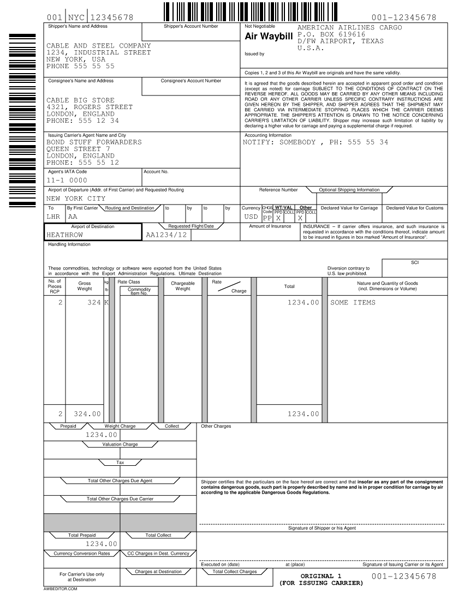AWB (Air Waybill)
What is an Air Waybill?
An Air Waybill (AWB) is a non-negotiable, legally binding transport document issued by a carrier or its agent that accompanies goods shipped by an international air courier. It provides detailed information about the shipment and serves as a receipt of goods for the shipper, a freight bill for the carrier, and a customs declaration for the authorities.

How is an Air Waybill used?
An international air waybill is used as the primary documentation for international air freight. It facilitates the tracking of the shipment, provides important details regarding the cargo, and includes instructions for handling and delivery.
The AWB must accompany the shipped goods and be presented at various points during transportation, such as customs clearance. It contains information like the shipper’s and consignee’s details, description of the goods, weight, and applicable charges.
What is the importance of Air Waybill?
An air waybill serves multiple roles: as a contract of carriage between the shipper and the carrier, as a receipt issued by the airline to acknowledge that they have received the cargo, and as a document of title that can facilitate customs clearance and other regulatory procedures. Its use standardizes cargo movements across different territories and simplifies transactions in international air trade.
How does an Air Waybill enhance shipment security?
Air waybill enhances shipment security by providing a detailed record of the cargo, its origin, destination, and handling instructions, which helps prevent tampering and loss during transit. The document allows carriers and security personnel to verify the contents against the AWB, ensuring that shipments are not compromised and comply with aviation security standards.
